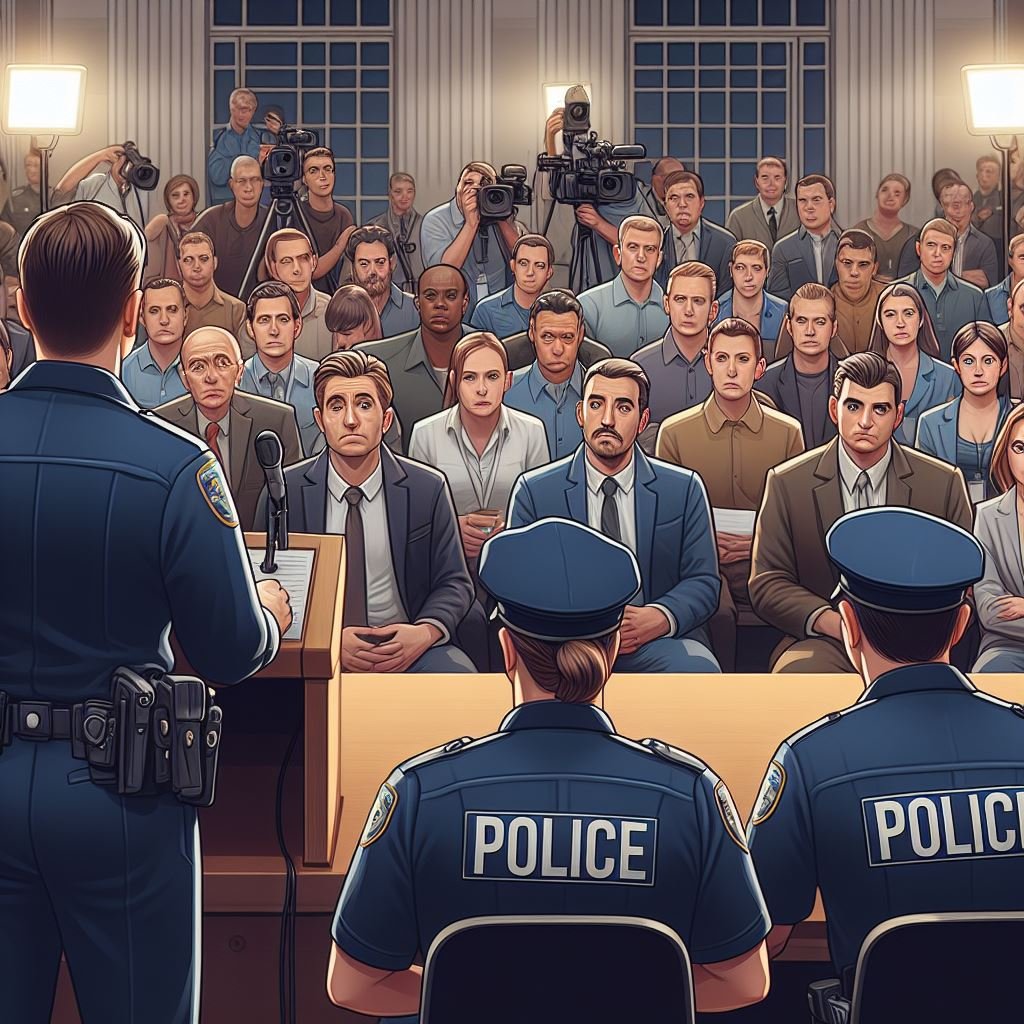Public Perception of Policing
Public perceptions are formed through an intricate interplay of individual experiences, cultural influences, media narratives, and societal discourse. At the center of perception formation lies socialization: individuals absorb and internalize values, beliefs, and norms of society over time - this starts in early childhood, being influenced by family, education, peer groups, wider societal interactions etc.
The media has an immense effect on the public’s perception of the police, acting as a filter through which information is disseminated and interpreted. Today's digital era sees not just traditional outlets such as newspapers, television, radio and magazines but also social media platforms and online forums playing this crucial role in shaping perceptions and opinions of its viewers and listeners. Through repetition and emphasis of particular narratives within media messages, agreement around issues may increase considerably leading to stronger responses and opinions by audiences. This especially true after an especially graphic and horrendous video of police use-of-force goes viral (e.g. the George Floyd killing).
Individual experiences, both direct and vicarious, play an essential role in shaping one's perceptions. Personal interactions with institutions such as the police can greatly alter one's opinion. For instance, having positive interactions with police officers can result in more favorable views of them overall; conversely, negative experiences may foster distrust and criticism towards them as an institution. Furthermore, stories shared among family, friends, traditional media or online with social media can vicariously shape our views without being directly experienced themselves.
Smartphones and the internet have exponentially increased the speed and breadth of information sharing, rapidly altering public perceptions. Time and space are almost meaningless now in terms of how fast information about potential police misconduct spreads. Viral videos, hashtags, and online campaigns can quickly draw public attention to causes or issues which might otherwise go ignored; however, this rapid communication can also spread misinformation which skews public opinions and create misinformed judgments and attitudes among audiences.
Psychological influences also play a part in shaping perceptions. Confirmation bias leads individuals to prefer information which confirms their existing beliefs over anything that contradicts them; this can create echo chambers on social media where only similar viewpoints are exposed, further solidifying one's viewpoints.
Public perceptions do not remain static; they can change over time with new information, shifting societal values, and changes to political and economic environments. Movements and campaigns have successfully altered public attitudes on issues like civil rights, gender equality and environmental protection in history.
Understanding public perceptions is of critical importance to policymakers and police leaders who wish to influence public opinion about the police. By understanding the factors affecting perceptions, they can craft messages that resonate with the public while developing policies aligned with values important to the community (and ideally the police workforce too) or initiate social changes that reflect public sentiment. Public perception of the police is a complex, ever-evolving process shaped by various forces and influences. Socialization, media coverage, personal experiences, psychological predispositions, societal discourse and discourse all play an integral part in how individuals and communities perceive the world around them. With technological advancement and shifting social norms continue to occur within society so too will public perceptions change accordingly.

Strengthening Partnerships with Traditional and Broadcast Media: Enhancing Law Enforcement Communication in the Digital Era
In an era dominated by digital platforms and social media, traditional newspapers, television, and radio remain invaluable partners for law enforcement agencies in effectively communicating critical information to the public. Law enforcement leaders must remember that public perception is built upon their public activity, and press conferences in the height of a crisis can make or break how a community thinks not just of the leaders but the department as a whole.

Paradigms and Policing: Shaping Public Views on Cops in the Digital Age
Mental models or paradigms serve as cognitive frameworks for individuals to interpret the world and interact within it. They are the lenses through which we see the world. Each of us has them and they affect our behavior in various ways.
Paradigms play a significant role in shaping perceptions and behavior about policing and they impact both members of the public and officers themselves.
Today, smartphones, the internet and social media platforms like play instrumental roles in shaping these paradigms by providing the means for sharing experiences and information quickly and widely. Public perception can be altered either positively or negatively by content posted online about police officers, depending on whether it highlights commendable engagement or instances of misconduct.

